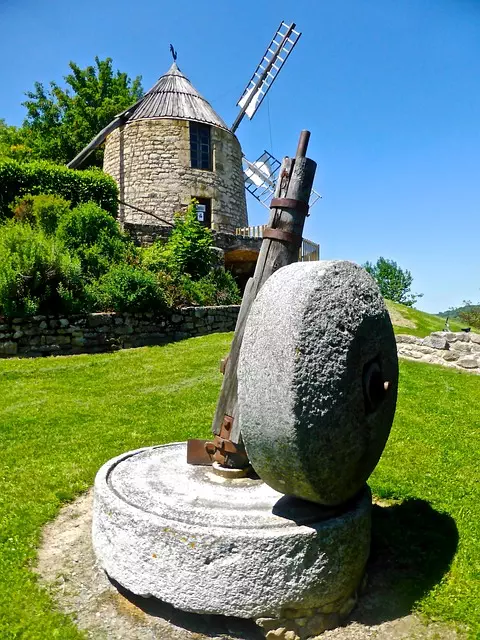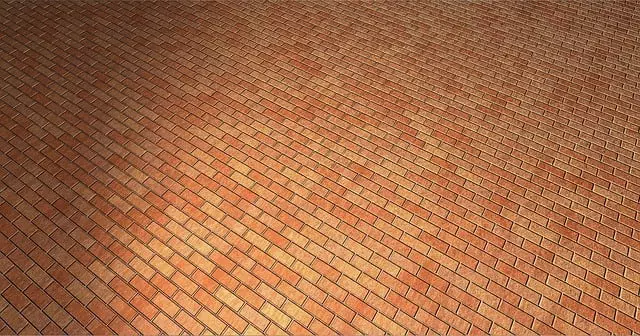Regular maintenance is crucial for pavement milling and grinding machinery to ensure optimal performance, longevity, and safety, particularly in demanding climates like Toledo, Ohio. A rigorous maintenance routine is necessary to handle the region's heavy usage and diverse pavement types, involving post-job cleaning, thorough inspection of all mechanical parts, precise lubrication according to manufacturer guidelines, and regular verification of the alignment and sharpness of milling teeth. In Toledo, this includes frequent checks on blades and cutting bits, as well as servicing hydraulic systems, engines, and control mechanisms to maintain smooth functioning. This proactive approach in Toledo, where pavement milling and grinding operations are high in volume, helps prevent unexpected equipment failures, reduce repair costs, and ensure top-quality workmanship. By adhering to these maintenance practices, Toledo's pavement milling and grinding services benefit from enhanced precision and efficiency, which translates into safer working conditions and better quality roads for the city's residents and commuters. Advanced technologies like real-time monitoring software with sensors have been adopted by local contractors to further streamline maintenance and ensure Toledo remains a leader in pavement milling and grinding services, both within the region and across the industry.
Keeping pavement milling and grinding machinery in top condition is not just about safeguarding infrastructure investments; it’s a critical component of operational efficiency and cost-effectiveness. This article delves into the intricacies of maintaining this specialized equipment, highlighting best practices for ensuring longevity and performance. From Toledo, Ohio’s pavement milling and grinding efforts to advanced maintenance techniques, we explore how diligent upkeep directly impacts the efficiency and productivity of such operations. Understanding wear and tear is key to preemptively addressing common issues that can arise in these machines, thereby maintaining a smooth and continuous workflow on roadways.
- Best Practices for Maintaining Pavement Milling and Grinding Equipment
- The Role of Regular Servicing in Enhancing Pavement Milling and Grinding Efficiency in Toledo, Ohio
- Understanding Wear and Tear: Identifying Common Issues in Pavement Milling Machines
- Advanced Techniques for the Maintenance of Pavement Milling and Grinding Machinery
Best Practices for Maintaining Pavement Milling and Grinding Equipment

Regular maintenance of pavement milling and grinding equipment is crucial for ensuring optimal performance, longevity, and safety on the job site. In Toledo, Ohio, as in any region, the harsh climates and heavy usage demand a rigorous maintenance schedule. The process begins with routine checks and cleaning after each job. Operators should thoroughly inspect all moving parts, including gears, bearings, and cutting tools. These components must be cleaned of debris and then lubricated according to the manufacturer’s specifications to prevent wear and extend their lifespan.
Moreover, sharpness and alignment of the milling teeth are pivotal for precise cuts and should be inspected and adjusted as necessary. In Toledo, Ohio, where pavement milling and grinding operations can encounter a variety of material types and conditions, the blades and cutting bits should be regularly checked for damage or dullness. This is critical to maintain the efficiency and accuracy of the milling process. Additionally, hydraulic systems, engines, and control mechanisms must be serviced at set intervals to ensure they operate smoothly. By adhering to these best practices for maintaining pavement milling and grinding equipment, operators in Toledo can prevent unexpected breakdowns, reduce repair costs, and maintain the highest standards of workmanship on every project.
The Role of Regular Servicing in Enhancing Pavement Milling and Grinding Efficiency in Toledo, Ohio

Regular servicing plays a pivotal role in enhancing the efficiency of pavement milling and grinding operations, particularly in regions with high traffic volume like Toledo, Ohio. Consistent maintenance of the milling machines not only extends their operational lifespan but also ensures precision and productivity on the job site. In Toledo, where the demand for road maintenance is constant due to its strategic location and extensive network of paved roads, the focus on proactive servicing can significantly reduce downtime and improve the quality of work performed. By maintaining the milling machines’ cutting heads, drive systems, and hydraulic components in optimal condition, crews can achieve smoother cuts with less material waste, which is crucial for timely project completion and adherence to roadwork schedules. Moreover, regular inspections and upkeep of these machines contribute to safer working conditions by preventing malfunctions or accidents that could arise from machine neglect or misuse. In Toledo, where the pavement milling and grinding requirements are akin to the demands of a bustling city, the integration of meticulous maintenance routines is essential for maintaining the flow of roadworks and upholding the quality of infrastructure repairs. This commitment to regular servicing translates into a more efficient process, leading to better roads and smoother travel experiences for Toledo’s residents and commuters.
Understanding Wear and Tear: Identifying Common Issues in Pavement Milling Machines

When maintaining pavement milling and grinding equipment, recognizing wear and tear is paramount to ensuring operational efficiency and longevity. Over time, critical components such as cutting tools, belts, bearings, and hydraulic systems are subject to stress and degradation. Regular inspections of these parts can reveal signs of fatigue or damage that may compromise performance. For instance, the cutting drums and teeth are particularly susceptible to abrasion and can quickly lose their sharpness if not monitored closely. This reduction in efficiency directly impacts the quality of milled surfaces, potentially leading to subpar results in pavement milling and grinding operations. In Toledo, Ohio, where the industry is active, proactive maintenance strategies are crucial for businesses to maintain their competitive edge. Technicians should pay close attention to any irregular noise or vibration during operation, which may indicate misalignment of components or impending failure of critical parts. Similarly, monitoring the condition of the conveyor belt system is essential, as a worn-out or damaged belt can significantly reduce material flow and affect the overall productivity of the milling machine. By addressing these common issues promptly, operators in Toledo and beyond can mitigate costly downtime and maintain high standards for pavement milling and grinding services. Regular servicing and timely repairs are key to maintaining a well-functioning pavement milling and grinding system, ensuring that the machines deliver precise cuts and consistent quality across various projects.
Advanced Techniques for the Maintenance of Pavement Milling and Grinding Machinery

Regular maintenance of pavement milling and grinding machinery is imperative for maintaining productivity and ensuring the longevity of the equipment. Advanced techniques in this field focus on the precise upkeep of the machine’s key components, which include the cutting drums, teeth, bearings, and hydraulic systems. In Toledo, Ohio, where the demand for pavement milling and grinding services is consistent due to its infrastructure projects, local contractors are adopting sophisticated maintenance protocols that incorporate the latest technological advancements. These protocols often involve the use of sensors and monitoring software that track machine performance in real-time, alerting operators to potential issues before they escalate. This proactive approach not only reduces downtime but also enhances the precision and efficiency of the milling process, leading to smoother road surfaces and improved safety on the roads.
Furthermore, the integration of computerized maintenance management systems (CMMS) has revolutionized the way pavement milling and grinding machinery is serviced. These systems schedule regular maintenance tasks based on machine usage patterns, component lifespans, and performance data, ensuring that each part receives attention exactly when it’s needed. In Toledo, Ohio, this translates to a fleet of well-maintained machines capable of handling the diverse demands of pavement milling projects throughout the region. By leveraging these advanced maintenance techniques, local contractors can deliver high-quality work consistently, upholding the reputation of Toledo’s pavement milling and grinding services as some of the best in the industry.


